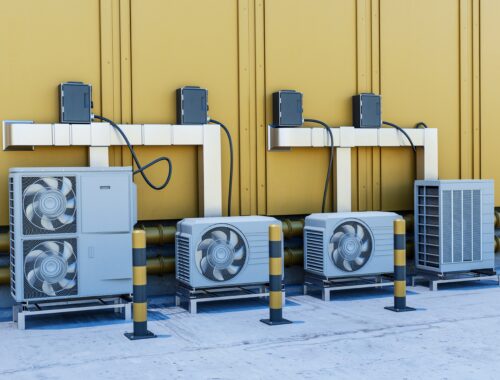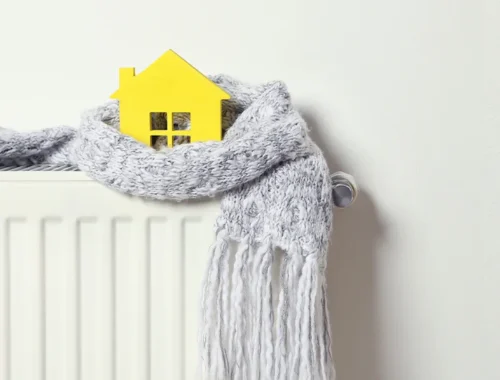During winter, it is necessary to keep heating systems working smoothly because this helps not only to preserve comfort indoors but also to prevent potential safety issues, extend the lifespan of equipment, and enhance the efficiency of the heating system.
In this article, we will discuss some issues related to heating systems and common heating problems during winter. In particular, we will consider the common heating problems in winter, their solutions, the benefits of regular maintenance of the winter heating system and when you should involve professionals.
What are the Common Heating Problems in Winter?
Special attention should be paid to heating systems during winter since low temperatures and increased load on equipment can cause various problems.
The most common problems encountered in winter include:
- Freezing of Pipes and Equipment:
If there is insufficient insulation in the system, the water in the pipes and equipment may freeze, leading to potential damage. Additionally, freezing of the outlet pipes leading to the chimney can cause issues with the effective removal of combustion products. - Electrical Failures:
Some heating systems are powered by electrical energy, and low temperatures can lead to electrical failures and malfunctions. - Temperature Regulation Issues:
Some heating systems may experience difficulties in maintaining a stable temperature due to malfunctions in certain components. - System Leaks:
Pipes and connections can distort due to cold temperatures and freezing, potentially causing leaks. - Insufficient System Pressure:
Low water levels or circulation problems can lead to insufficient pressure in the heating system.
How to Identify the Problems?
Identifying problems with heating systems in winter is important to prevent serious damage and ensure comfortable indoor conditions. Although it may be challenging for non-professionals to definitively understand these issues, there are several signs to look out for.
- Insufficient Heat:
If the heating system is not providing enough heat to the room, this could be an indication of various issues, such as problems with water circulation. - Uneven Heating:
If some parts of the room remain cold while others overheat, there may be problems with the balancing of the heating system, leaks or blockages in the pipes. - Increased Fuel Consumption:
If the system begins to consume more fuel than usual, this may indicate that the boiler or other components are not operating efficiently. - Unusual Sounds:
Noises and other unusual sounds in the system may indicate problems. These could be blockages, problems with the pump, improper operation of valves and other malfunctions. - Frequent Failures or Shutdowns:
Constant system failures or shutdowns may indicate problems with electricity, sensors, or other parts of the equipment. - Start-up Problems:
Problems starting up the system, such as waiting a long time before heating starts, can be a sign of problems. - Not Properly Working of the Thermostat:
If the room temperature does not match the thermostat settings, this may be due to a malfunction of the thermostat. - Freezing Pipes:
If the air in the system is not properly vented, it can cause freezing of the pipes and equipment. - Water Leaks:
Visible water leaks around equipment or pipes may be a sign of connection problems or damage. - Reduced Pressure:
If the pressure level in the system decreases, this may be a sign of leaks, pump problems, or system failures.
What Are the Benefits of Regular Winter Heating System Maintenance?
Heating system maintenance plays a key role in ensuring efficient, safe and long-lasting operation of the heating equipment.
The benefits of regular winter heating system maintenance include:
- Maximum Comfort:
Well-maintained heating systems ensure necessary indoor temperature and humidity levels, creating a comfortable environment in the room. - Extension of Equipment Life:
Regular maintenance helps identify and correct small problems before they cause major damage, extending the life of heating systems. - Improved Air Quality:
Well-maintained heating systems prevent the circulation of dust, allergens and other harmful substances and help to improve indoor air quality. - Safety:
Regular maintenance helps identify potential dangers (for example: gas leaks or electrical problems), ensuring safety. - High Efficiency:
Heating system maintenance ensures efficient operation. It requires less energy for the desired temperature, and helps reduce energy and resource consumption. - Save Money:
Efficiently operating heating systems use less energy to heat the room, helping reduce costs for heating.
Learn crucial safety tips for HVAC systems in homes and offices. Ensure efficiency and protect occupants’ health with expert advice from Jupiter Air Conditioning. Read more.
When Is It Time to Call the Professionals?
To sum up, maintenance of heating systems is very important. It helps to provide comfortable indoor temperature, extend equipment life, reduce energy consumption and save money, improve air quality, ensure safety, and enhance environmental sustainability.
Don’t overlook potential problems. Take care of the system periodically. And if you encounter difficulties in identifying defects and malfunctions, please contact us. The qualified and experienced specialists from Jupiter Air Conditioning and Heating will rectify the issues, giving you the opportunity to enjoy the numerous advantages of heating systems during the winter season.
You can also explore and purchase high-quality heating systems for both residential and commercial spaces from our broad selection. Contact us to learn more about our systems and services, including installation, replacement and maintenance.



